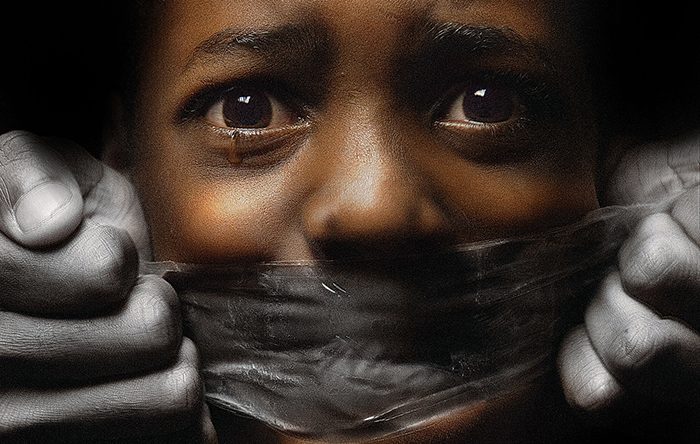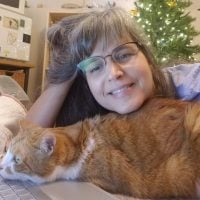What can I do to help?
I keep asking myself even months after George Floyd’s murder.
As I tug at the threads of my place in the world and his absence from it, my question shifts.
I interact so little with law enforcement, so where can I do my part? In this world’s web of inequities, it’s hard to find the right perspective. Even in seeking it, I notice ideas of “rightness” sneaking in, a reflection of my whiteness, probably.
I’ll just check my ego at the door and remember this is soul work, where realness matters more.
The closest match to my actual skin color, à la the paint section at Wal Mart, is Cinnaswirl. My late summer color is probably darker. I haven’t checked lately. Meanwhile, I continue passing for white.
I grew up in a primarily white suburban neighborhood. A police officer lived three doors down. I was intimidated by him when I was little, but his whole family was friendly and kind to mine. I felt safer in the cul-de-sac with his cruiser sitting in his driveway.
I have never had any remotely aggressive encounters with law enforcement. Just a few speeding tickets. One became a funny family story. I saw the flashing lights, pulled over, and gave my license and registration to the officer who’d caught me in a speed trap. I was preoccupied with the effects of my nervous system kicking into overdrive—heart quickening, hands quivering—and thinking about the impact of the ticket on my single-mom budget, when my son’s voice interrupted from the back seat.
“Are we going to jail?” My daughter and I laughed.
“No,” I said. His fear disappeared. End of story.
I wasn’t always aware of my privilege, my invisible unearned advantages (or absence of undeserved hostility) in experiences like those. I see it more clearly now.
When I interact with a police officer, whether I’ve done anything wrong or not, the initial surge of nervous system activation settles back down, and my life goes on.
As a child, I’d felt safer with a policeman for a neighbor. Safer from what? I never articulated that, but if I had, and I were honest, images of things that happened in neighborhoods with darker complexions might have come to mind.
Why? The Netflix documentary “13th” exposes fearmongering after the emancipation proclamation. Narratives of African Americans as dangerous tainted their freedom right out of the gate, by feeding fear to my white ancestors.
As Maya Angelou says, “Do the best you can until you know better. Then when you know better, do better.” George Floyd’s death prompted me to do better, and go further.
I have white body supremacy, a term Resmaa Menakem uses in his book, My Grandmother’s Hands. I felt uncomfortable hearing the term over and over in the audiobook version. I wanted to argue it didn’t apply to me, because I’m not a white supremacist, but I kept listening.
See, my white body is the vehicle of my unearned advantages. I’m basically playing that race card every time I engage with others. I didn’t choose it, but I can choose to be aware of it, or oblivious.
We are viscerally connected to the experiences of our ancestors through our DNA and the way our nervous systems respond to each other. Our bodies and skin color are part of that collective past, reaching far back, and reconstituted in the present. That may seem strange to some, but I buy it because I know trauma works that way. It is relived in the present, over and over, timeless, until it heals. Healing depends on intentional effort, not time.
Wait. That was a topic jump from my privilege to what I know of trauma.
You see, I can’t help noticing that racism seems to follow the same playbook that many now refer to as narcissistic abuse. I think that link might add strength to collective effort to do better. It sure helps me to “get it” and energizes my commitment as an ally.
You may think of narcissistic abuse as a private matter between individuals, but much of the damage comes from the way it reaches into social spaces to overpower, silence, and demoralize targets. Racism is narcissistic abuse on a historic, sociocultural, scale. The entitlement is rooted in whiteness.
I was barely conscious of that connection when I chose to attend a protest of George Floyd’s murder. Questions from my past came alive again in the present as I reflected on why I was going. I still live in a small university town where the degrees of separation between people are few. My career path took me in and out of the university, twice. Both exits were pretty messy. I took a mask and some water with me, along with some self-talk about having a right to be there.
I squirmed inside reflecting on the first messy exit. It had begun with some political wrangling around race. Values of inclusion, representation, and celebrating diversity (which aligned with mine) were coopted and used in the service of other hidden agendas. I clashed with the powers-that-be over the gap between. It was my first big lesson in dirty power plays, but it was by no means my last.
That got me wondering if the people of color around me wondered why I was there. Bryan Stevenson, the attorney played by Michael B. Jordan in the film “Just Mercy,” gave a great answer when Walter McMillan (played by Jamie Foxx) asked him, “Why you doing this?” Bryan tells just enough of his own story of racial trauma to convey, “I know what it’s like to be in the shadows.”
As I sat in the shadows in the grass for eight minutes and 46 seconds of silence for George Floyd, I quietly became a mess of tears and snot inside my mask. My mind scrambled for something to hold on to. I wondered what he grasped for in his last moments. I am grasping now on to the idea that even deep-rooted systemic change is possible if enough of us do our part.
His murder ignited fires in the bodies of people of color all over the country, the way the #metoo movement did for women. I may not understand the depth of it, but the outrage makes sense. His words “I can’t breathe” echo Eric Garner’s and more than I’ll ever know of. I shudder at the memory of the police officer’s body which communicated clearly without words “I don’t care.” When your nervous system is on fire, the indifference of bystanders makes it worse. My presence at a protest was a statement that I care.
What’s my next step?
I can make my own unconscious assumptions about race consciousness.
I once took an implicit racism test, pairing faces with words. Associating positive words with light skin was more automatic. I did produce non-racist responses as well, but it took me longer. My takeaway lesson was that it takes time, effort, and self-reflection to uproot racist pathways in my brain, and create space to grow or strengthen anti-racist ones.
I can continue filling in the holes in my education about race. For instance, one speaker drew a parallel between George Floyd and Emmett Till who helped launch the civil rights movement. I didn’t know his name or story before. I took pictures of some of the signs listing other names, some familiar, some not, and began looking those up.
Understanding narcissistic abuse makes the dynamics behind racism more recognizable. Take, for instance, the systematic criminalization of African Americans outlined in the documentary “13th.” Think about it. Slavery was horrific. Making newly freed slaves into criminals is just crazy-making.
Projection. Gaslighting. Victim blaming. All narcissistic strategies. Furthermore, reactions of appropriate anger, at even a fraction of the intensity of the offense, are used to justify the narrative and more abuse.
I can empower myself by taking responsibility for healing my own pain instead of projecting it.
Resmaa Menakem blew my mind, framing slavery in a historical context of white-on-white violence that goes back much farther. European Americans who fled their own trauma then projected it onto African Americans. Projection is a common narcissistic defense against looking within, which can quickly become aggressive when the intensity of trauma is mixed in. Victims refusing to heal often become aggressors.
I’m an anti-racist work in progress, but I offer some of my own steps as suggestions that may benefit others:
>> Get real with people who get you.
>> Know your worth especially when others don’t.
>> Trust your gut, which registers the dissonance between truth and lies.
>> Be open to discovering truths that are even truer than what you knew before.
>> Expand your humanity in places where you benefit from inequities.
>> When you’re the one on the short end, burn your pain as fuel for bigger phoenix fires.
>> Most of all, keep hope alive.
I like to think our ancestors are watching and waiting for us to really step up and move closer to the truth of our equality and interconnection with one another. As Bryan Stevenson says in “Just Mercy,”
“Hope allows us to push forward even when the truth is distorted by the people in power.”
Stay close to that kind of hope.











Read 0 comments and reply